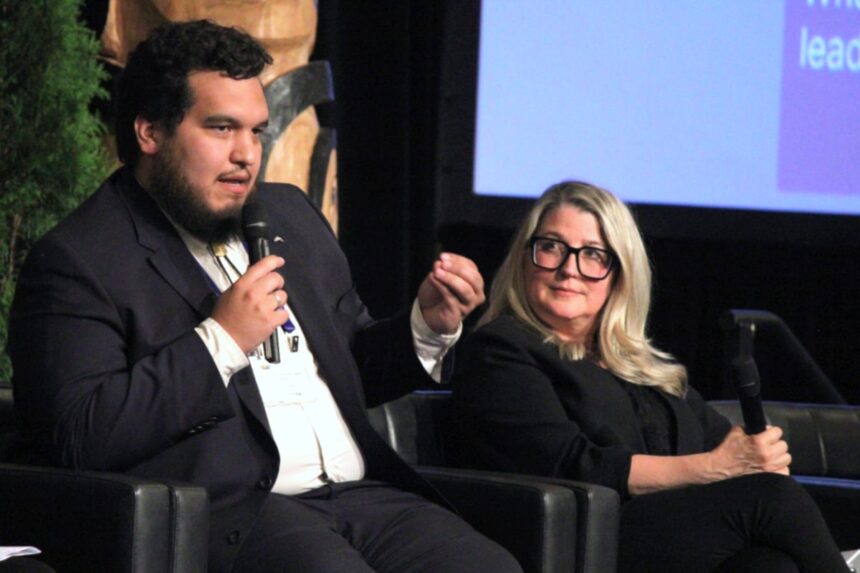The steady hum of boat engines mingles with traditional songs as members of the Gitga’at First Nation navigate coastal waters near Hartley Bay, harvesting seafood using techniques passed down through countless generations. This scene represents just one facet of a growing movement across British Columbia where Indigenous communities are reclaiming food sovereignty through innovative approaches to both marine and terrestrial resources.
“Our connection to these waters isn’t just about sustenance—it’s about cultural continuity and asserting our rights as stewards of these territories,” explains Marven Robinson, a Gitga’at community leader who has witnessed the evolution of his Nation’s food security initiatives over decades.
The Gitga’at Nation is among dozens of First Nations across BC working to strengthen food security through both traditional harvesting and contemporary approaches. Their efforts have taken on renewed urgency following pandemic-related supply chain disruptions that disproportionately affected remote Indigenous communities.
According to research from the First Nations Health Authority, Indigenous households in BC are 2.5 times more likely to experience food insecurity than their non-Indigenous counterparts. This disparity stems from historical policies that disrupted traditional food systems, combined with ongoing challenges including climate change impacts and limited access to affordable commercial food options.
“When the pandemic hit, many of our communities realized just how vulnerable we were,” notes Lydia Hwitsum, political executive with the First Nations Summit. “But it also created an opportunity to accelerate work that was already underway to rebuild food sovereignty.”
The BC First Nations Fisheries Council reports that over 30 coastal Nations have developed comprehensive marine resource management plans in recent years, balancing conservation with sustainable harvesting. Inland, initiatives like the Indigenous Food Systems Network have helped communities revitalize agricultural practices and wild food gathering.
In the Okanagan, the Syilx Nation has expanded traditional food gardens while simultaneously developing sophisticated water management systems that adapt ancient knowledge to contemporary climate challenges. Their work has become a model studied by other Nations facing similar conditions.
“What we’re seeing isn’t just about producing food,” explains Dawn Morrison, founder of the Working Group on Indigenous Food Sovereignty. “It’s about healing relationships—to land, to water, to each other, and to our cultural practices that were systematically targeted through colonization.”
Funding for these initiatives comes from multiple sources, including $24.5 million recently announced through the provincial Indigenous Agriculture and Food Systems Initiative. The program supports projects ranging from community gardens to commercial-scale food production enterprises led by First Nations.
The economic dimension cannot be overlooked. As Joseph Norris, economic development officer for Sts’ailes Nation explains, “Food sovereignty creates jobs while keeping resources and profits within our communities. We’re developing businesses that align with our values rather than extractive models that haven’t served us well.”
These efforts face significant challenges, including bureaucratic hurdles, jurisdictional conflicts over land and marine resources, and the ongoing impacts of industrial development. Climate change poses perhaps the greatest threat, with shifting migration patterns for fish and wildlife and increasingly unpredictable growing conditions.
Despite these obstacles, measurable progress is evident. A recent survey conducted by the First Nations Food Systems Project found that communities with established food sovereignty initiatives reported a 40% increase in access to traditional foods compared to five years earlier.
The knowledge being reclaimed and adapted isn’t just benefiting Indigenous communities. As climate change and food security concerns grow across all sectors, many non-Indigenous food producers are looking to First Nations for guidance on sustainable practices that can withstand environmental pressures.
“What we’ve known for thousands of years—about timing harvests with natural cycles, about maintaining biodiversity, about taking only what’s needed—these are principles the wider society is now recognizing as essential,” says Qwul’thilum (Bob Wilson), an elder from Cowichan Tribes who has been instrumental in knowledge-sharing initiatives.
As these efforts continue to expand, a question emerges that extends far beyond Indigenous communities: In an era of increasing environmental uncertainty, can the revitalization of traditional food systems offer a pathway toward greater resilience for all of British Columbia?










